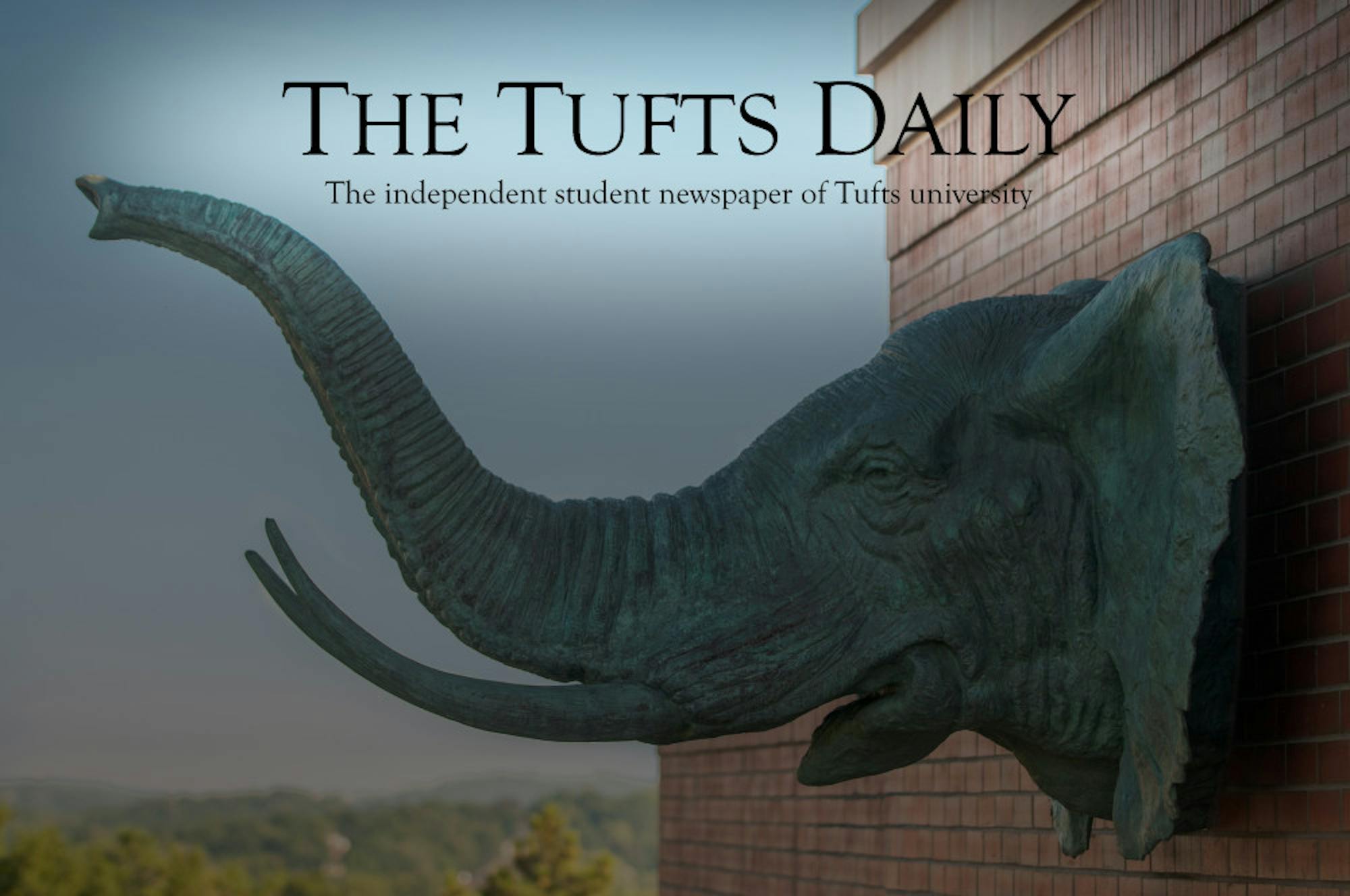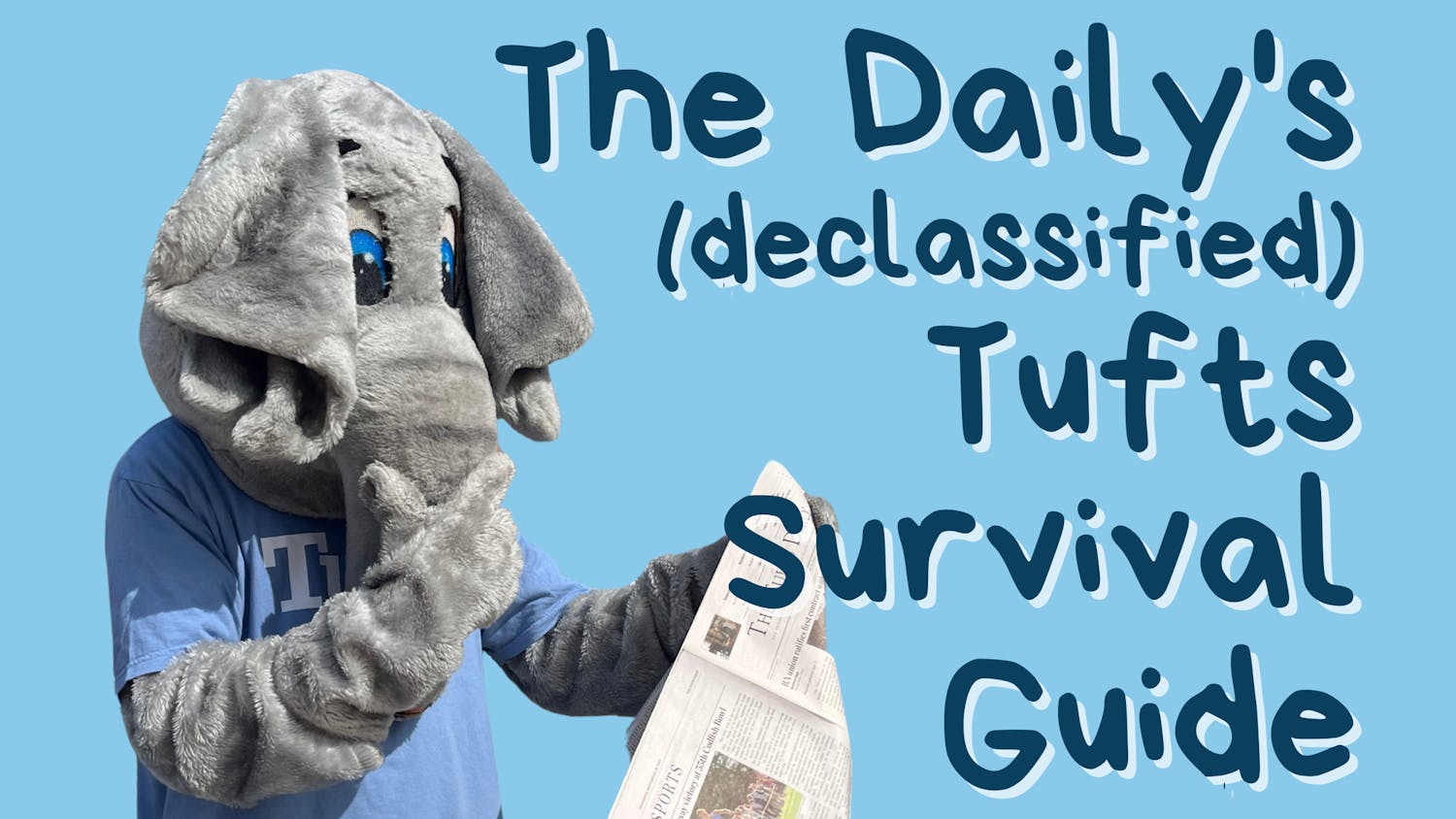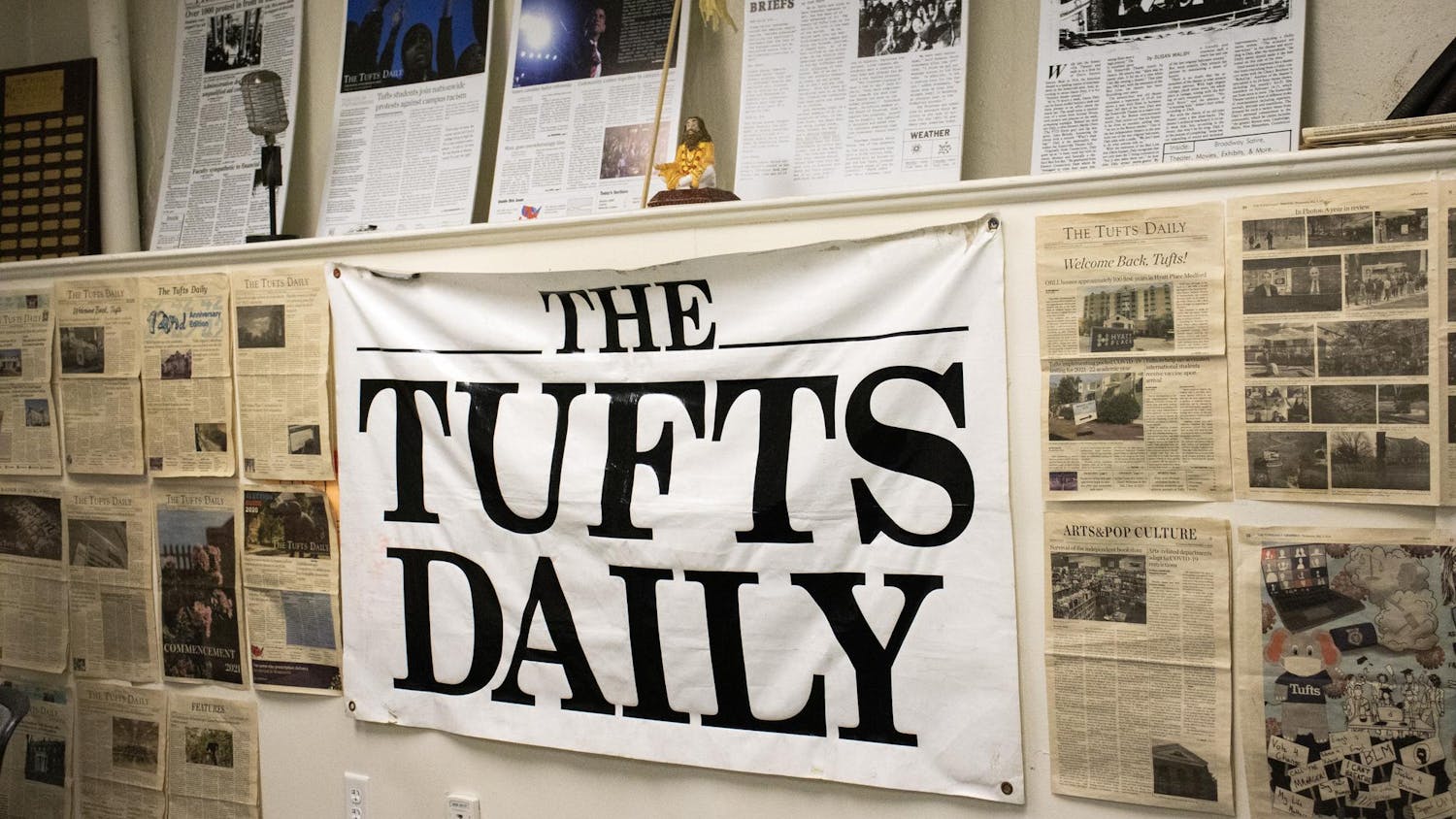Mindless violence exploded on our doorstep this Marathon Monday, launching emotional shrapnel in the form of shock, confusion, sadness and anger into our hearts.
First came the wave of restlessness and anxiety. A barrage of uneasy texts, tweets, Facebook posts and failed phone calls rained on us that afternoon. With so many of our friends running, volunteering or cheering this Marathon Monday, we found it impossible to relax without assertions of their safety. After the placating reassurances from our friends came the wave of confusion. Like so many at Tufts, I spent much of the day trying to make sense of this wildly unexpected interruption of our American lives.
We expected this long weekend to be a breath of fresh air in our busy Tufts lives, a time to celebrate our special connection with the Boston Marathon either by pushing our physical limits or by giving the runners our support. None of us expected anything like this bombing to happen, not in Boston, not so close to our friends. This attack is perhaps the most prominent act of terror that I can recall since 9/11. It is a type of violence that is not normal for most of us; we expect to go through our daily lives expecting peace and regularity. That this form of violence is so strange and unfamiliar really is an American privilege.
While this attack caught everyone by total surprise, I cannot say the same about the Boston community’s response. From my personal connections with those providing emergency services at the Marathon, I had full and complete confidence in the victims of the bombing would be given the lifesaving attention they needed. In Boston, we live among the world’s top hospitals and have some of the best-trained first responders. From Buzzfeed to the Boston Globe, we were bombarded by images and stories capturing the brave actions of EMTs, police officers, firefighters, runners, volunteers and so many more. In this country, we have the comfort of knowing someone will come to help if we find ourselves under attack. This knowledge is also an American privilege.
On Marathon Monday, an eight-year-old boy was killed on Boylston Street. The same day, 32 were killed by 14 car bombs and three roadside bombs across Iraq while Syrian warplanes dropped bombs on Damascus. The day before, 30 were killed in al-Qaeda affiliated attacks in Somalia and on Saturday a bomb exploded on a bus in northwestern Pakistan, killing nine. The type of attack we experienced on Marathon Monday is an unexpected reality for us, but not an implausible one for some Israelis and Palestinians, Indians and Pakistanis and so many others across the globe. This past year, I spent a considerable amount of time in a corner of the world where the waves of anxiety, confusion and fear that surprised us on Monday were a daily reality and virtually impossible to shake. Fortunately, my U.S. passport gave me the privilege of escaping to safety if a violent attack were to occur, away from periodic pops of gunshots, away from loud military planes and away from the endless curls of barbed wire.
This is a time for us to keep the families of those hurt and lost on Monday in our thoughts and in our hearts. It is also a time for us to be proud of our community response to this tragedy. We should celebrate our strength and our ability to unite in the face of fear because this sense of unity is truly a privilege so many across the world do not have. As we move forward, we should keep in mind that the fear and anxiety the Tufts community and what the Boston community went through on Monday is an everyday reality in some American neighborhoods and in many countries around the globe. This act of terrorism not only brings us together as Bostonians and as fellow students, but also unites us with the many across the world who experience this violence on a regular basis. As we heal and recover from this attack, we should move forward to create not only a safer Boston but also export our sense of safety and community to neighborhoods across America and all around the globe.
This explosion of seemingly foreign and strange disease forced us to unify as citizens of the world under a common threat. As we heal and work to make Boston safe again, let’s reach out to one another and draw inspiration from the communities that are plagued by this form of violence on a regular basis. We have to remember that, as Americans, we have the power to create a safer world around us. We have the privilege to vote, to speak freely and to train as first responders and keep our communities safe. We have a voice in American military engagements beyond our borders and our country’s international relationships.
--
Nishant Saharan is a junior majoring in international relations. He can be reached at nishant.saharan@tufts.edu.






